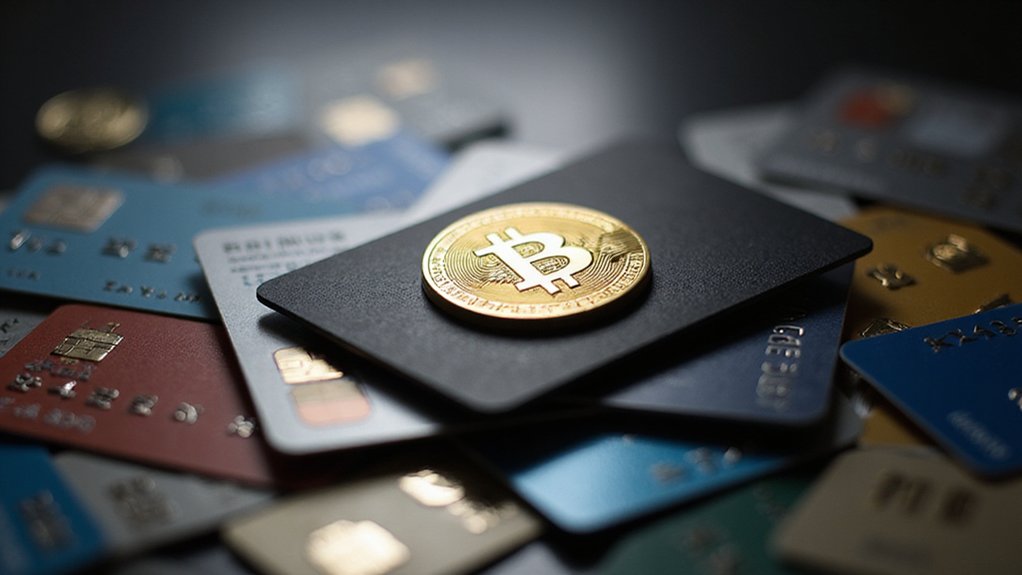PayPal’s entry into the stablecoin arena with PYUSD represents both a calculated embrace of digital asset infrastructure and a shrewd attempt to maintain relevance in an increasingly decentralized financial landscape. The ERC-20 token, pegged 1:1 to the US dollar and backed by deposits, cash equivalents, and treasuries, carries New York State Department of Financial Services approval—lending institutional credibility to what might otherwise appear as another corporate cryptocurrency experiment.
PayPal’s PYUSD transforms corporate cryptocurrency experimentation into institutionally credible digital asset infrastructure with regulatory backing.
The stablecoin’s integration within PayPal‘s existing infrastructure creates an intriguing paradox: a decentralized blockchain token operating within a decidedly centralized payment ecosystem. Users can convert PYUSD into over 100 supported cryptocurrencies through PayPal’s platform, effectively transforming the payment giant into a crypto exchange with training wheels. This conversion capability extends to popular assets like Bitcoin, Ethereum, and USDT, while PYUSD serves as a stable intermediary—reducing the volatility risk inherent in direct crypto-to-crypto swaps.
The practical applications reveal PayPal’s strategic positioning. PYUSD functions seamlessly within both PayPal and Venmo applications, enabling fee-free transfers between platform users while supporting traditional person-to-person payments with expedited settlement times. For merchants, the stablecoin offers faster payment confirmation and reduced currency conversion costs, potentially increasing confidence in crypto-backed transactions. However, users must recognize that storing significant PYUSD holdings in software wallets poses substantial security risks compared to hardware storage solutions.
Perhaps most notably, PYUSD bridges the gap between PayPal’s walled garden and the broader decentralized finance ecosystem. As an ERC-20 token, it maintains compatibility with decentralized applications like Uniswap, enabling participation in staking, borrowing, and lending activities—though one wonders how many PayPal users will venture beyond the platform’s familiar interface into DeFi’s more treacherous waters. PYUSD enables near-instantaneous settlements for businesses, dramatically enhancing operational efficiency compared to traditional payment processing methods.
The conversion process itself demonstrates PayPal’s commitment to user accessibility, hiding complex blockchain mechanics behind recognizable interfaces while maintaining transaction transparency on the Ethereum ledger. Small fees apply when swapping to third-party tokens or executing cross-network withdrawals, but the integration simplifies cryptocurrency usage for non-technical users who might otherwise avoid digital assets entirely. Paxos publishes monthly public reports detailing the asset reserves backing PYUSD, ensuring transparency and maintaining user trust in the stablecoin’s backing.
PYUSD ultimately represents PayPal’s acknowledgment that the future of payments likely includes blockchain technology, whether traditional financial institutions participate willingly or find themselves reluctantly dragged into the decentralized future by market forces and consumer demand.









